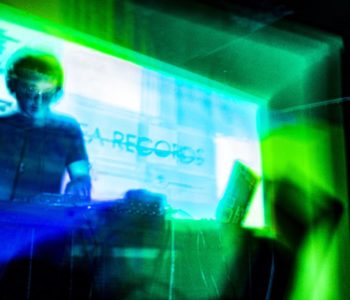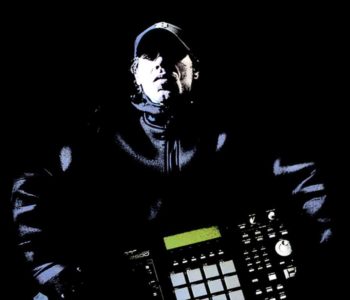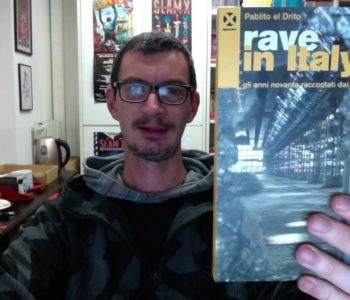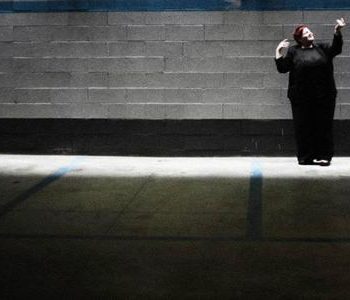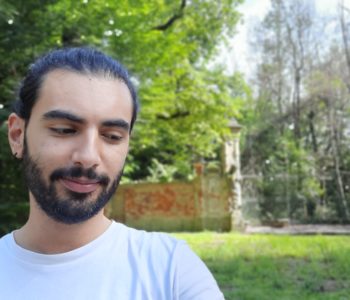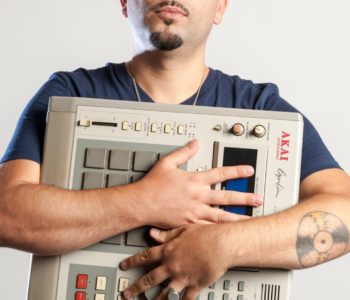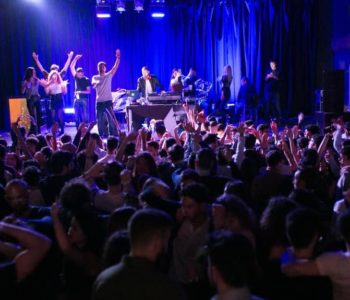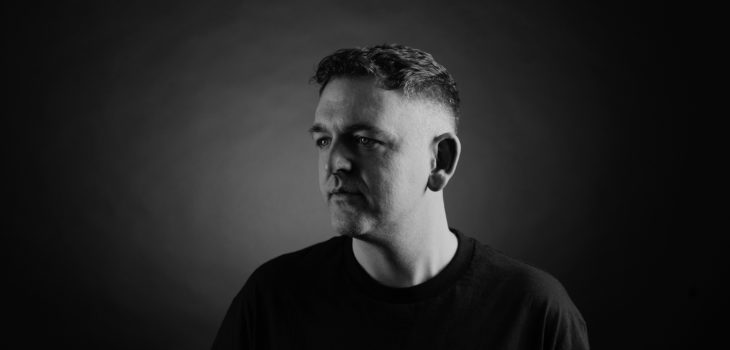 Break the Wall
Break the Wall
Building on more inclusivity, social and cultural parity with an open critique with the ‘business’ aspect of this culture
We started in January with the idea of research on the status of the Club Culture. Our aim is at understanding its developments to find its current meaning. We are in the first step of a mixed qualitative-quantitative approach, collecting many interviews between musicians, organizers, producers, DJs, professionals, and enthusiasts around the globe. Researching to grasp ideas, opinions, discussions, and all information that we can further employ for a cross-analysis with other literature/media discussions.
An ambitious project that faced with humility, intellectual honesty, and method, could ultimately give so much to those who base their life on music. Tracing of new trends as well as policy indications, and operative solutions, these are our ultimate goals, to redesign together a new club culture.
We are in the first step of a mixed qualitative-quantitative approach, collecting many interviews…
Under this umbrella, the great “Andrea Mi” with the cultural depth and passion that distinguished him, the last January took our challenge and in his interview mentioned one of the last EP – ‘Submerged‘ – of his friend and “fundamental” English producer, Om Unit.
Six months have passed so far. We have gone very far with Break the Wall, but perhaps, it might be the case to close the first balance of this adventure. So, we present today a really nice interview that Jim Cole aka Om Unit released for us a few days ago.
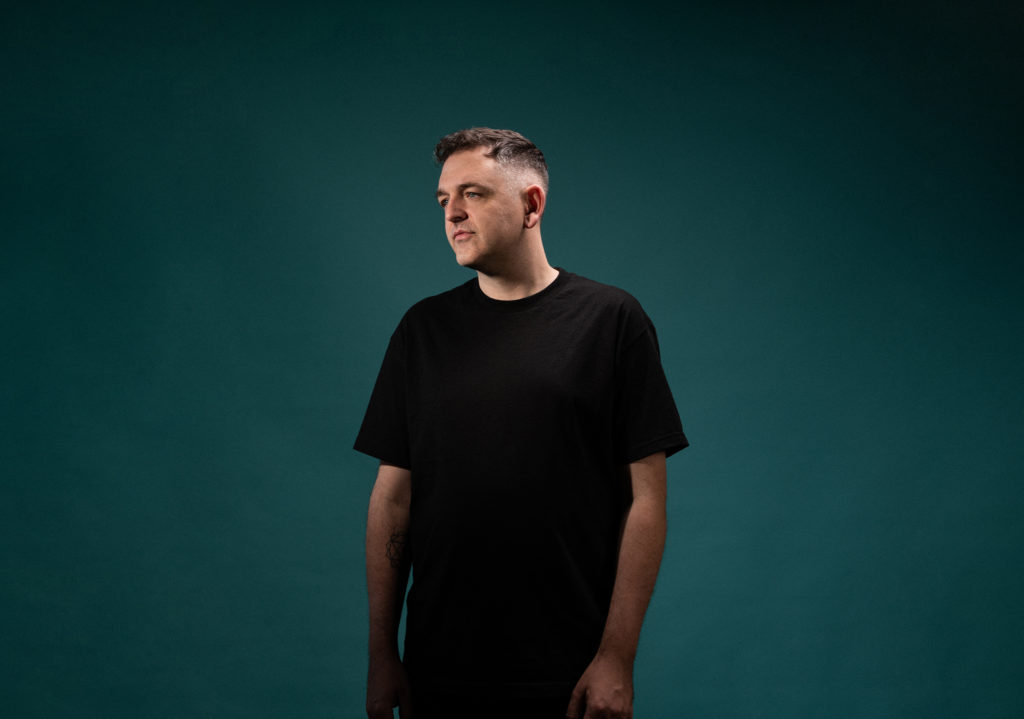
“As if driven by a sort of cosmic connection”. The same feeling that sometimes binds ideas, passion with a pure dedication for music. We close the semester with the reflections of a DJ, a Musician, and a Producer who offers us a clear synthesis on our topic.
His songs are dense, deep, beautiful. With styles and schools that have structured the history of Club Culture in recent decades. From jungle to techno, from bass music to house rhythms.
Andrea Mi, Break the Wall 24 January 2020
For several years, Om Unit has been making a fundamental contribution to electronic music. Distinguishing itself by a pure approach, through a label, the Cosmic Bridge, many releases, and extraordinary innovative capacity.
Let’s dive now into this fruitful conversation through the Om Unit spaceship!
Dear Jim,
thank you so much for participating, it’s a real pleasure for us to have your contribution. Even if we are witnessing hard times. We think that it is important exactly now to increase our voices and efforts. Building new networks, placing both “Art and human relations” at the core of our communities. Using the Mad Mike Banks metaphor, this time calls for supporting that invisible and necessary sea of water that defines the resistance of underground.
What do you think about it? What’s your recent experience during lock-down? was there anything in your direct experience that moved in this direction?
You’re welcome! I love that you mention Mad Mike because, at the moment, he is working with other musicians in Detroit to build a School for kids right now. That is about as real as it gets!
I’ve been watching how DJ culture has been suffering and how DJ’s have responded with great interest. There has certainly been a broad range of fast adaptation in some sense with things like streaming/distanced parties. But I think this crisis has shown us that it’s a good time to really take a look at what we are all doing with it all. For example, I used to hear people complain about the capitalist side of things, and I was thinking that they were being a little alarmist. But I have recently really had time to think about the whole landscape in music and take stock of what is really important, which has been very positive and refreshing.
Issues are now on the table like inclusivity and social and cultural parity and there is some further open critique with the ‘business’ aspect of this culture too which are all very necessary at the moment.
In terms of having this ‘Covid break’ time to really look my own path, I can say I have been able to be really honest about my musical direction and writing choices in the studio. I’m now finding my feet in new and interesting sounds that feel more authentic whilst moving towards more of an eclectic format as DJ and Producer again. I have a new radio starting and some exciting new releases coming too which reflect a more authentic vibe for me personally, some new studio techniques are being explored and I’m working on new collaborations too which I’m excited to share with people.
In our previous reviews, we discussed a lot about the devastating impact that the COVID crisis delivered on the whole sector of culture (at least for a very weak system like the Italian one).
What about your direct experience as an artist and a label manager in a more advanced system like the English one? Did you find a cushion to land on, do they (politics) offer support for the sector?
There has been support from the UK government only for the big concert venues, which was actually a very large amount of money, but sadly there is nothing for the small clubs. This conservative government don’t value the arts as much as they should, so we have to fight as usual for our own way of life. There was some fairly decent help for small businesses though, and some help for self-employed people like myself. Lucky for me I work part-time as a teacher. Some of my friends are not so lucky and will have to change their lives to make it work.
It’s really sad because dancing to music is one of the most therapeutic things we can do with our body, and the powers here do not recognise the value of maintaining a place to do this for when the pandemic is over. Major venues were already under pressure here because of the ruthless nature of development and city planning that also does not value cultural spaces. The future of nightclubs looks really bleak at the moment and more needs to be done in the UK to help to save them.
The message we have perceived through your latest releases is certainly positive, to move on. We refer to “As We Continue” that you launched under the pseudonym of Phillip D Kick, and that hymn to the joy for the rave culture that is Joyspark.
What’s your feeling with your last Phillip D Kick release?
The ‘Phil Stuff’ as I call it is almost like someone else – a different person. I try to respect the footwork and jungle roots at the same time and it’s more a ‘just for fun’ thing where I get to be free and just make Tracks that ‘bump’. I get too serious about music sometimes so I think this allows me to just be free and make more club stuff. This new record is pretty laid back in some sense though, but I think I was always more into the smoother side of jungle and certainly the jazzier side of footwork anyway.
What are the positive things of making music nowadays?
I mean, the world is going crazy right? So we might as well all just make good honest art.
Despite the positive Bandcamp-Only self-release, what do you think about the role of platforms during this crisis?
I feel that technology has always been a key part of the art world, and social media and online music platforms are no different. There is a positive in the sense that access to music has never been so broad for everyone, but similar to Netflix, when you have a big choice, it’s like where to go? Algorithms are now there to choose for you. A lot of modern-day social media platforms use behavioural modification techniques on their users via algorithmic manipulation (I recommend the recent work of Jaron Lanier in this regard).
This as we know has created a rise in populist thinking and monoculture. I myself love the access to music that for example the combination of discogs and bandcamp has given me but I can’t really connect with Spotify or Apple Music that well. Perhaps it is because my interest is in more niche music and collecting records, but I find it hard to navigate an infinite choice and I don’t want to have to feed an algorithm to ‘tune’ it to my taste, that feels like handing over my free-will to a machine.
A producer of your experience has certainly lived through all the steps of digitization. This accordingly has had different impacts on the progress of various sectors.
Do you think that COVID has exacerbated or attenuated them?
– We refer, for example, to the increasingly evident trend by people to shift their social life and behavior towards digital –
For those who make electronic music like you, technology represented the promise in a certain sense of a better future. Do you think this promise has been accomplished?
– We refer to the fact that we observed that the initial movements and the waves are all slowly declined to make room for the market and consumption. Or that today it is increasingly difficult to imagine a utopia or a future as it could have happened in the 80’s/90’s … –
What is the future that awaits us?
Well, I think the idea of the ‘tech utopia’ is just boring. Again, I have to draw upon Jaron Lanier’s viewpoint that the so-called ‘singularity’ as imagined by Ray Kurzweil is as absurd as ‘The Rapture’. We have evolved as creatures who have a natural inbuilt appreciation of music in a real space. Now whether the idea of full-scale club culture is at risk we cannot say but the rise in illegal parties this year certainly dictates that there is something missing already for people. The authorities would do well to think about how to maintain safe and meaningful dance spaces going forward, even it means a kind of ‘furlough’ for clubs in terms of rent for starters.
The future relies on this kind of assistance, and without it we have no real certainty of anything really. I think the dream of the 80’s and 90’s happened in the 80’s and 90’s. I think today’s dream is really about returning to a safer dancefloor not just in terms of the pandemic but in terms of attitudes of the people in clubs as well as attitudes of the industry itself. It’s up to us within the culture to choose how it looks, and make those changes, but the physical infrastructures themselves need to be protected.
A curiosity, when the love for your “cosmic sound” started?
I always had an interest in ambient and spaced out music, even when I was a kid. I think growing up in the 80’s played a big part in that somehow. I always loved how 80’s pop music had these weird reverbs. When I was very young I loved the abstract sounds that pop artists like peter Gabriel or Steely Dan would use in the mix, even as a kid I remember hearing stuff like ELO and wondering how they got those mad effects.
I think that’s why I love dub reggae and dub techno so much too nowadays, the use of space and strange FX. I had a brief time playing those kind of ‘Balearic chuggers’ as well as a DJ which for me felt pretty cosmic. I also wanted to inject some kind of ‘spiritual energy’ into my hip-hop work as ‘2tall’ back in the early 2000’s which kind-of came through with the ‘beautiful mindz’ LP. I think hearing the psychedelic work of early flying lotus and that whole scene out in LA in the mid-2000’s also really turned me on to the idea of using more ‘out-there’ studio techniques and kinda put me onto the idea of making instrumental music that had basslines and weight that wasn’t just ‘club’ orientated.
Using more ‘out-there’ studio techniques …
Artists like J Dilla, Dabrye and Ras G all had some of that cosmic stuff going amongst their work too, using these really interesting ways of layering and chopping sounds. It’s a kind of continuum in a lot of music I think that is always there amongst the layers. Recently I’ve heard a lot of cosmic ambient music that is also quite sample based which has that same feeling too, people like broshuda or UON for example, or even the more beatsy stuff like seekersinternational (whom I’ve made a mini LP with which drops soon)
What do you think about club culture? What the situation in your city and beyond?
I mean right now it’s asleep, maybe for the better? I think there will be some positive changes if the venues can stay open for long enough. In Bristol, we have some issues with closure or imminent closure, but there’s some small ventures such as High Rise sound system throwing parties to seated crowds. Really, it’s all still on hold, so as I said it’s a good time to pause and think. With regards to DJ and Music Culture in general, there’s work to do in terms of bringing more attention towards doing things in a more consciously progressive manner when we do return to the dancefloor.
What are the main criticalities? What we can do to improve it?
Here’s 3 out of many..
- Reach out to more people of colour, women, queer, trans, non-binary and other marginalised people if you have a platform and share it with them wherever possible.
- Use your platforms to speak up about things that need changing within the culture you are involved in.
- Promote the music you truly love only, and it will feed you forever. It might not always pay the bills but it will bring more happiness, and that happiness will have more positive affect on the culture around you, it’s a ripple effect in that way.
Thank you so much for your availability and effort! We hope to have one of your shows in our leaning tower city of Pisa in the next future!
Can’t wait to be back!
Links:
Ripensare tutto a partire da una maggiore inclusione, parità sociale e culturale e con un occhio critico verso gli aspetti “imprenditoriali” di questa cultura
Siamo partiti a gennaio con l’idea di avviare una ricerca sullo stato della Club Culture per comprenderne gli sviluppi e poter contribuire a ritrovarne un significato. In questa prima fase di lavoro stiamo raccogliendo molte interviste tra musicisti, organizzatori, produttori, Djs, addetti ai lavori e appassionati da tutto il mondo allo scopo di sedimentare idee e concetti sui quali poi effettuare un’analisi incrociata con altra letteratura e discussioni da altri media che affrontano il tema.
Un progetto ambizioso che affrontato con umiltà, onestà intellettuale e metodo, alla fine potrebbe dare così tanto a coloro che basano la propria vita sulla musica. Tracciare nuove tendenze, indicazioni politiche e soluzioni operative, questi sono i nostri obiettivi finali, per ridisegnare insieme una nuova club culture.
Siamo così nella prima fase di un approccio misto qualitativo-quantitativo, stiamo raccogliendo molte interviste …
Sotto questo ombrello, il grande “Andrea Mi” con la profondità culturale e la passione che lo hanno contraddistinto, lo scorso gennaio ha accolto la nostra sfida e nella sua intervista ha citato uno degli ultimi EP – ‘Submerged‘ – del suo amico e “fondamentale” produttore inglese Om Unit.
Da allora, sono passati sei mesi. Siamo andati molto lontano con Break the Wall, e potrebbe essere il caso di chiudere un primo bilancio di questa avventura. Quindi, presentiamo oggi una bella intervista che Jim Cole aka Om Unit ci ha rilasciato pochi giorni fa.
“Come spinti da una sorta di connessione cosmica”. Una forza che lega idee e passione con una dedizione pura per la musica, chiudiamo il semestre con le riflessioni di un DJ, un Musicista e un Producer – Om Unit – che più di altri riesce ad offrire una chiara sintesi sul nostro argomento.
Le sue canzoni sono dense, profonde, bellissime di stili e scuole che hanno strutturato la storia della Club Culture negli ultimi decenni: dalla jungle alla techno, dalla bass music ai ritmi house.
Andrea Mi, Break the Wall 24 January 2020
Da diversi anni Om Unit dà un contributo fondamentale alla musica elettronica. Distinguendosi con un approccio puro, attraverso un’etichetta, la Cosmic Bridge, molte pubblicazioni e una straordinaria capacità innovativa.
Immergiamoci ora in questa ricca conversazione attraverso l’astronave Om Unit!
Carissimo Jim,
grazie mille per la tua partecipazione, è un vero piacere per noi avere poter ricevere il tuo contributo. Stiamo assistendo a tempi difficili. Pensiamo che sia importante proprio ora aumentare le nostre voci e i nostri sforzi. Costruire nuove reti, ponendo “Arte e relazioni umane” al centro delle nostre comunità. Usando la metafora di Mad Mike Banks, questo tempo ci chiede di sostenere quel mare d’acqua invisibile e necessario che definisce la resistenza del’Underground.
Cosa ne pensi? Qual è stata la tua esperienza durante il lock-down? nella tua diretta esperienza c’è stato qualcosa che si è mosso in questa direzione?
Prego! Mi piace che tu abbia menzionato Mad Mike perché, al momento, sta lavorando con altri musicisti a Detroit per costruire una scuola per bambini. Questo è tanto reale quanto si sta realizzando!
Ho vissuto la sofferenza della nostra cultura ma anche come i DJs hanno risposto con grande interesse. C’è stata sicuramente una vasta gamma di adattamenti rapidi, in un certo senso, con cose come lo streaming/feste a distanza. Ma penso che questa crisi ci abbia mostrato che è un buon momento per dare un’occhiata a come e cosa stavamo facendo tutti. Ad esempio, sentivo le persone lamentarsi del lato capitalista delle cose e pensavo che fossero un po ‘allarmiste. Ma recentemente ho davvero avuto il tempo di pensare all’intero panorama della musica e fare il punto su ciò che è veramente importante, il che è stato molto positivo e rinfrescante.
Questioni come l’inclusività e la parità sociale e culturale sono ora sul tavolo e ci sono anche altre critiche aperte con l’aspetto “business” di questa cultura che sono tutte molto necessarie al momento.
Questa pausa dovuta al Covid mi ha permesso di guardare a fondo la mia strada, posso dire che mi ha permesso di guardare con onestà alla mia direzione musicale e alle mie future scelte compositive in studio. Ed ora mi sto ritrovando in queste scelte con suoni nuovi e interessanti che sembrano più autentici, mentre in parallelo mi muovo verso un formato più eclettico come DJ e produttore. Ho un nuovo show radio che sta per iniziare e alcune nuove ed entusiasmanti uscite in arrivo che riflettono un’atmosfera più autentica per me personalmente, alcune nuove tecniche di studio sono in fase di esplorazione e sto anche lavorando a nuove collaborazioni che sono entusiasta di condividere con le persone.
Nei precedenti numeri di #BtW abbiamo discusso molto dell’impatto devastante che la crisi dovuta al COVID ha prodotto sull’intero settore della cultura (almeno per un sistema molto debole come quello italiano).
Qual’è stata la tua esperienza diretta come artista e label manager in un sistema più avanzato come quello inglese? Hai trovato un cuscino su cui atterrare, offerto (dalla politica) a supporto al settore?
Il sostegno del governo britannico c’è stato, ma solo per i grandi con una somma di denaro molto elevata, che purtroppo è arrivata ai piccoli club. Questo governo conservatore non apprezza le arti quanto dovrebbero, nulla di nuovo, dobbiamo combattere come al solito per il nostro modo di vivere. Tuttavia, c’era un aiuto abbastanza decente per le piccole imprese e un aiuto per i lavoratori autonomi come me. Fortunatamente per me che lavoro part-time come insegnante. Alcuni dei miei amici non sono così fortunati e dovranno cambiare le loro vite per ripartire.
È davvero triste perché ballare con la musica è una delle cose più terapeutiche che possiamo fare con il nostro corpo, e i poteri qui non riconoscono il valore di mantenere un posto dove farlo quando la pandemia sarà finita. I luoghi principali erano già sotto pressione qui a causa della natura spietata dello sviluppo e della pianificazione urbana che non tiene conto degli spazi culturali. Il futuro dei locali notturni sembra davvero desolante al momento e nel Regno Unito è necessario fare di più per aiutarli a salvarli.
Il messaggio che abbiamo percepito attraverso le tue ultime uscite è sicuramente positivo, un inno per andare avanti. Ci riferiamo a “As We Continue” che hai lanciato con lo pseudonimo di Phillip D Kick, e quell’inno alla gioia per la cultura rave che è Joyspark.
Qual è la tua sensazione con la tua ultima uscita di Phillip D Kick?
Il “Phil Stuff” come lo chiamo io, è quasi come un altro, una persona diversa. Cerco di rispettare le radici footwork e jungle ma allo stesso tempo è più una cosa “solo per divertimento”, in cui posso essere libero e creare tracce che colmano uno spazio. A volte prendo troppo sul serio la musica, quindi penso che questo mi permetta di essere libero e di fare più cose da club. Questo nuovo disco è piuttosto rilassato in un certo senso, ma penso di essere sempre stato più interessato al lato più morbido della jungle e sicuramente al lato più jazz della footwork.
Quali sono gli aspetti positivi del fare musica al giorno d’oggi?
Voglio dire, il mondo sta impazzendo, giusto? Quindi potremmo fare solo della buona arte, quantomeno onesta.
Nonostante positiva politica di Bandcamp di sostegno all’autoproduzione, cosa ne pensi del ruolo delle piattaforme durante questa crisi?
Sento che la tecnologia è sempre stata una parte fondamentale del mondo dell’arte e che i social media e le piattaforme di musica online non sono diversi. C’è un aspetto positivo nel senso che l’accesso alla musica non è mai stato così vasto per tutti, ma simile a Netflix, quando hai una grande scelta, è come “dove andare”? Adesso gli algoritmi possono sostituire la scelta per te. Molte moderne piattaforme di social media utilizzano tecniche di modifica comportamentale sui propri utenti tramite manipolazione algoritmica (raccomando il recente lavoro di Jaron Lanier al riguardo).
Questo, come sappiamo, ha creato un aumento del pensiero populista e della monocultura. Io stesso amo l’accesso alla musica che, ad esempio, la combinazione di discogs e bandcamp mi ha dato, ma non riesco a connettermi così bene con Spotify o Apple Music. Forse è perché il mio interesse è per la musica più di nicchia e per il collezionismo di dischi, ma trovo difficile navigare in una scelta infinita e non voglio dover alimentare un algoritmo per “sintonizzarlo” secondo i miei gusti, è come se cedessi il mio libero arbitrio ad una macchina.
Un produttore della tua esperienza ha sicuramente vissuto tutte le fasi della digitalizzazione. Come sappiamo, questa ha avuto impatti diversi sul;’evoluzione dei vari settori.
Pensi che COVID abbia esacerbato o attenuato queste dinamiche?
– Ci riferiamo, ad esempio, alla tendenza sempre più evidente delle persone di spostare la propria vita sociale e il proprio comportamento nel digitale –
Per coloro che producono musica elettronica come te, la tecnologia ha rappresentato la promessa in un certo senso di un futuro migliore. Pensi che questa promessa sia stata mantenuta?
– Ci riferiamo al fatto che abbiamo osservato il lento declino dei movimenti iniziali per fare spazio al mercato e ai consumi. Oppure al fatto che oggi è sempre più difficile immaginare un’utopia o un futuro come poteva accadere negli anni ’80/’90 … –
Quale futuro ci aspetta?
Bene, penso che l’idea “dell’utopia tecnologica” sia solo noiosa. Ancora una volta, devo attingere al punto di vista di Jaron Lanier secondo cui la cosiddetta “singolarità” immaginata da Ray Kurzweil è assurda quanto “The Rapture”. Ci siamo evoluti come creature che hanno un naturale apprezzamento innato della musica in uno spazio reale. Ora se l’idea di una club culture su vasta scala sia a rischio non lo possiamo dire, ma l’aumento delle feste illegali quest’anno indica certamente che manca già qualcosa per le persone. Le autorità farebbero bene a pensare a come mantenere in futuro spazi di danza sicuri e significativi, anche se ciò significa una sorta di “furlough” in termini di affitto per chi aveva cominciato da poco.
Il futuro si basa su questo tipo di assistenza e senza di essa non abbiamo alcuna reale certezza di nulla. Penso che il sogno degli anni ’80 e ’90 sia accaduto negli anni ’80 e ’90. Penso che il sogno di oggi sia davvero quello di tornare a una pista da ballo più sicura non solo in termini di pandemia, ma in termini di atteggiamenti delle persone nei club e di atteggiamenti dell’industria stessa. Spetta a noi, all’interno della cultura scegliere l’aspetto e apportare tali modifiche, ma le infrastrutture fisiche stesse devono essere protette.
Una curiosità, quando è iniziato l’amore per il tuo “suono cosmico”?
Ho sempre avuto un interesse per la musica ambient e spaziale, anche quando ero bambino. Penso che crescere negli anni ’80 abbia giocato un ruolo importante in questo, in qualche modo. Ho sempre amato il modo in cui la musica pop degli anni ’80 aveva questi strani riverberi. Quando ero molto giovane amavo i suoni astratti che artisti pop come Peter Gabriel o Steely Dan usavano nel mix; anche da bambino ricordo di aver sentito cose come ELO e mi chiedevo come facessero a ottenere quegli effetti folli.
Penso che sia per questo che adoro il dub reggae e il dub techno anche oggi, l’uso dello spazio e strani FX. Per un periodo di tempo ho suonato anche quel tipo di “Balearic chuggers” di un DJ che per me sembrava piuttosto cosmico. Volevo anche iniettare una sorta di “energia spirituale” nel mio lavoro hip-hop come “2tall” all’inizio degli anni 2000, che è arrivato con l’LP “beautiful mindz“. Penso mi abbia influenzato anche ascoltare i primi lavori psichedelici di flying lotus, così come l’intera scena a Los Angeles a metà degli anni 2000 mi abbia fatto venire l’idea di usare più tecniche di studio che sono “là fuori”, alla portata, e mi ha fatto venire l’idea di fare musica strumentale con bassi e profondità non solo orientata al “club”.
usare più tecniche di studio che sono “là fuori”, alla portata
Artisti come J Dilla, Dabrye e Ras G hanno avuto anche alcune di quelle cose cosmiche che si inserivano nel loro lavoro, usando questi modi davvero interessanti di stratificare e tagliare i suoni. È una sorta di continuum in molta musica, penso che sia sempre presente tra gli strati. Di recente ho ascoltato molta musica ambientale cosmica che si basa abbastanza sui campioni e che ha anche lo stesso feeling, persone come broshuda o UON per esempio, o anche le cose più eccitanti come seekersinternational (con cui ho realizzato un mini LP che uscirà presto)
Cosa ne pensi della club culture? Qual è la situazione nella tua città e oltre?
Voglio dire in questo momento sta dormendo, forse per il meglio? Penso che ci saranno alcuni cambiamenti positivi se le sedi potranno rimanere aperte abbastanza a lungo. A Bristol abbiamo alcuni problemi con la chiusura o la chiusura imminente, ma ci sono alcune piccole iniziative come il sistema audio High Rise che organizza feste a folle sedute. Davvero, è ancora tutto in attesa, quindi come ho detto è un buon momento per fare una pausa e pensare. Per quanto riguarda i DJ e la cultura musicale in generale, c’è del lavoro da fare in termini di portare maggiore attenzione nel fare le cose in modo più consapevolmente progressivo quando torneremo sulla pista da ballo.
Quali sono le principali criticità? Cosa possiamo fare per migliorarlo?
Eccone 3 su molte …
- Coinvolgere più persone black, donne, queer, trans, non binarie e altre persone emarginate se hai una piattaforma e condividere con loro ovunque possibile.
- Usa le tue piattaforme per parlare di cose che devono cambiare all’interno della cultura in cui sei coinvolto.
- Promuovi solo la musica che ami veramente e ti nutrirà per sempre. Potrebbe non sempre pagare le bollette, ma porterà più felicità, e quella felicità avrà un effetto più positivo sulla cultura che ti circonda, è un effetto a catena in quel modo.
Grazie mille per la tua disponibilità e impegno! Speriamo di poterti riavere presto a Pisa con uno dei tuoi show!
Non vedo l’ora di tornare!
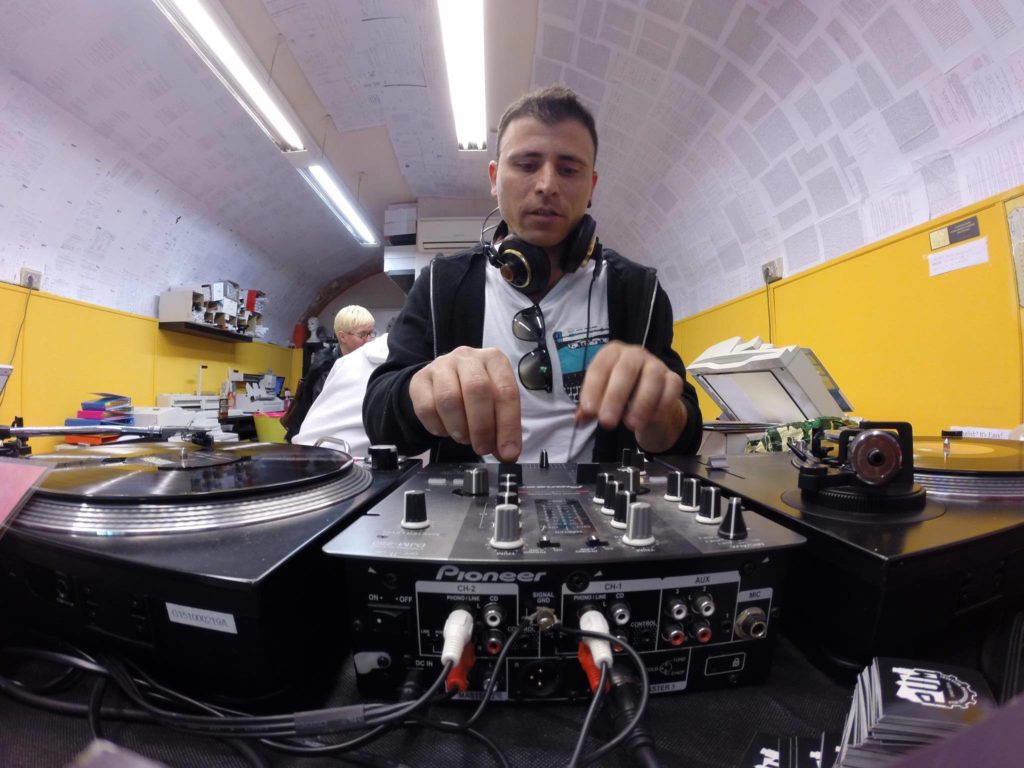
Edited by Daniele V. One of the founders of the PUM – Pisa Underground Movement. Devoted to electronic music and its cultural background. I started writing to accomplish the need to tell what’s going on and track change about our activities, and I found new energies and interests.)
ISCRIVITI ALLA NOSTRA NEWSLETTER
Riceverai contenuti extra, aggiornamenti su eventi, informazioni su artisti e sulle prossime release

